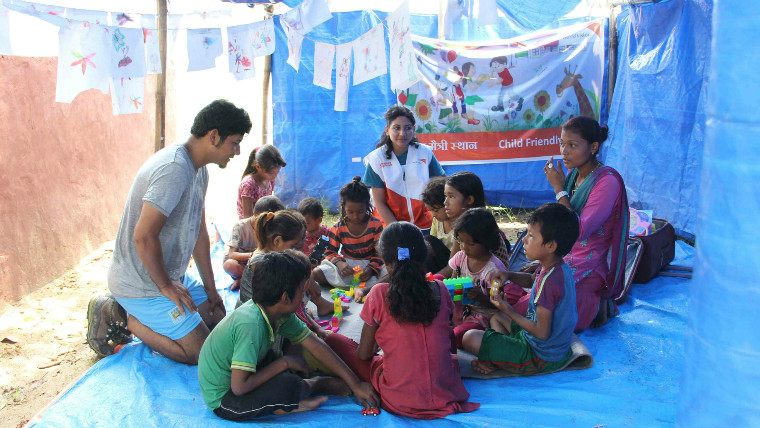Nepal Earthquake three months on: New report raises concerns over children’s psychological health
Three months after two earthquakes killed an estimated 8,500 people and injured another 20,000 in Nepal, World Vision is warning of an increase in child rights abuses with many reported cases of trafficking, child marriage, child labour and violence against children.
The charity’s warning comes as World Vision partners three other NGOs - Save the Children, Plan International and UNICEF - to launch the Nepal Children’s Consultation Report which highlights children’s experiences in the 3 months following the disaster. The report warns of severe risks to children’s health, well-being and protection unless urgent humanitarian needs are met.
World Vision’s Nepal Earthquake Response Operations Manager Admir Bajrami said: “A UNICEF 2015 report already showed a child labour rate of 33.9% and 10 % of children married before reaching 15 years of age, before the earthquakes struck. We also know that over 500 potential cases of trafficking have been prevented since the earthquake in Nepal. This is a cause of concern for us.”
“With the monsoon season intensifying, we must act quickly and effectively to ensure the welfare of earthquake-affected children and their families is addressed. Children have lived through a hugely distressing experience which has also disrupted their education and they urgently need psychosocial support to recover,” Bajrami explained.
A number of measures were put into place following the earthquake to manage the risk, including a halt on inter-country adoption and the registration of new orphanages. However, children interviewed for the report commented on feeling more vulnerable in the shelter camps that have sprung up across Nepal.
To combat the increased threat of child exploitation, World Vision has opened 35 Child Friendly Spaces that serve as a safe haven for hundreds of children.
Bajrami said: “Children are among the most vulnerable during an emergency – and World Vision is committed to improving community awareness so they are protected when disasters hit. A program has been started where we work with 22 village development committees in six districts to strengthen capacity of villagers to protect their own children.”
ENDS
Notes to editors
For more information, pictures, case studies and interviews, please contact:
Carina Wint | Media Specialist | World Vision UK | www.worldvision.org.uk
Phone: +44 1908244446| Mobile +44 (0)7471216 013| E-mail: carina.wint@worldvision.org.uk |
Skype: carinadwint |